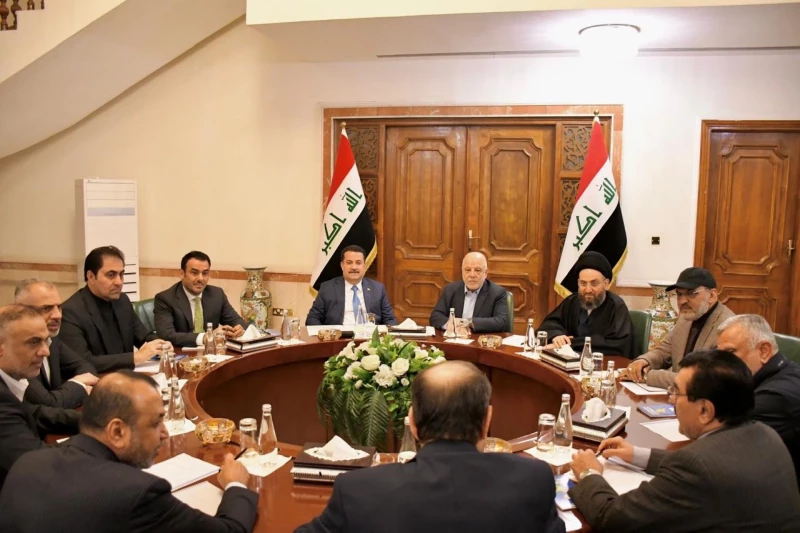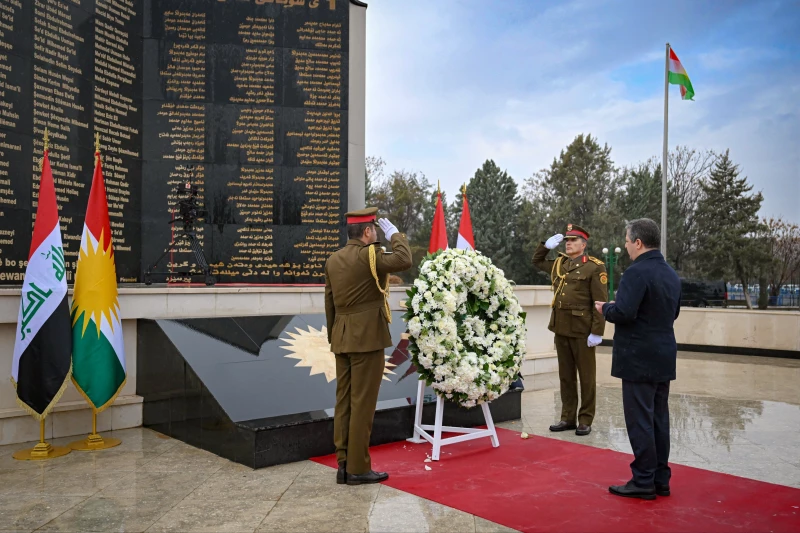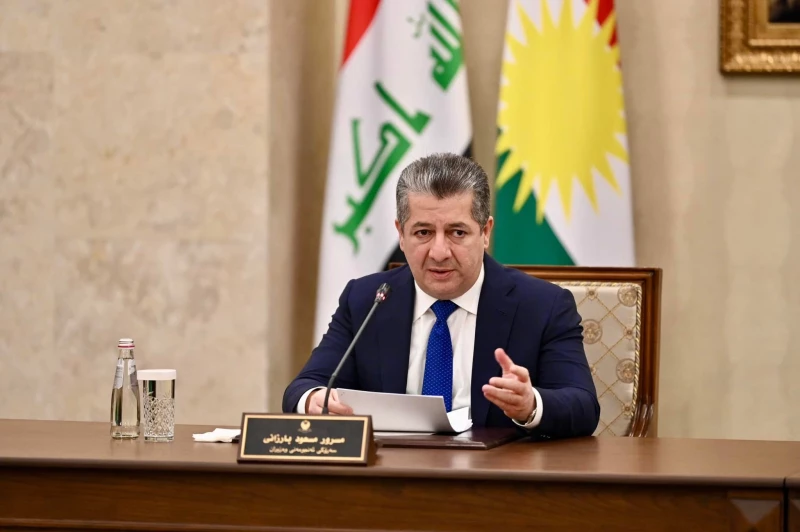ERBIL, Kurdistan Region of Iraq - Just days after the Region’s Prime Minister announced that civil servants would receive two salaries in a row, life has returned to the markets in the Kurdistan Region and locals express their gratitude for the good news.
Prime Minister of the Kurdistan Region Masrour Barzani on Wednesday announced that the Kurdistan Regional Government (KRG) and the Federal Government have reached an agreement after months of negotiations, as a result, the Region’s civil servants who were long deprived from one of their fundamental rights as a result of unresolved issues between Erbil and Baghdad, and economic sanctions and pressure on Erbil by federal authorities, would now receive their salaries on time.
Barzani’s promise soon materialized when a day after his announcement, Baghdad announced that they would send the KRG salaries of March, just a few days after they had sent salaries for February.
The agreement was welcomed by many across the country.
Photos of KRG PM @masrourbarzani displayed on the highest tower in Erbil after the recent agreement with the central government with regards to public servants' salaries.#TheNewRegion #Erbil #KRG pic.twitter.com/2ytgDbFaD2
— The New Region (@thenewregion) April 5, 2024
“We thank him for he is a man of dark days, a man of tough circumstances,” an Erbil local said when talking about the agreement and Barzani’s efforts. “He came to the aid of the poor on the days before Eid.”
For months, Barzani had called upon the people of the Region, who were suffering from late salaries as a result of Baghdad not sending the Region its share of the federal budget, to practice resilience, promising that better days would come, a promise that many seemed to remember.
“Because of the Kurdistan Region Prime Minister, the whole of the Kurdistan Region practiced resilience,” one local said.
“Today’s achievement was a result of your resilience,” another locaI said while addressing Barzani, thanking him for “resolving the issue of civil servants.”
The agreement between Erbil and Baghdad was a team effort, as Barzani put it, and not just from the Kurdistan Regional Government (KRG) side, but also reciprocated from Baghdad.
“I thank the Federal Prime Minister, H.E Mohammed Shia al-Sudani, and all parties who helped in the process of bypassing all the obstacles together,” Barzani said at the time.
In a statement on Wednesday, #Kurdistan Region PM Masrour Barzani thanked #Iraqi PM Mohammed Shia al-Sudani and all parties involved in overcoming the obstacles.#TheNewRegion pic.twitter.com/S4dGKAf4Pm
— The New Region (@thenewregion) April 3, 2024
Erbil and Baghdad reaching an agreement was welcomed by diplomatic missions in the country as well, as they had time and again called on both governments to reach a common ground and make sure the Region’s civil servants are not deprived of their salaries.
“We welcome the announcement of a solution that will allow salary payments to be made for March. It's encouraging to see progress in resolving long standing issues and it shows the benefits of sustained dialogue between the Kurdistan Region of Iraq and Baghdad,” read a UK Consulate in Erbil statement to The New Region on Thursday.
“We urge both sides to maintain this dialogue and cooperation to find a sustainable solution to the issue of salary payments and to other outstanding challenges,” the statement added.
The KRG had for years relied on oil exports to pay its civil servants, however a halt in oil exports and budget disagreements with Baghdad has led the government to take austerity measures and oftentimes unable to independently fund the salaries of its civil servants.
Exports of the Kurdistan Region’s oil through the Turkish Ceyhan pipeline was halted in March 2023 after Ankara lost a case against Baghdad in a Paris-based arbitration court. The case accused Ankara of breaching a 1973 agreement by allowing the KRG to start selling oil independent of Baghdad.
The ruling ordered Ankara to pay $1.5 billion to Baghdad in compensation for breaching the agreement, however Turkey responded by halting exports through its pipeline.
The Kurdistan Region previously exported just under half a million barrels of oil, including around 75,000 barrels from federal controlled fields in Kirkuk, on a daily basis through the Ceyhan pipeline, however ten months of halted exports has dealt a large economic blow to both the KRG and foreign oil companies working in the Region.
Over the past year, the KRG sent multiple delegations to Baghdad in a bid to resolve the issue of the civil servants salaries, however with oil exports halted, there was no materialization of the meetings, until now.



 Facebook
Facebook
 LinkedIn
LinkedIn
 Telegram
Telegram
 X
X


